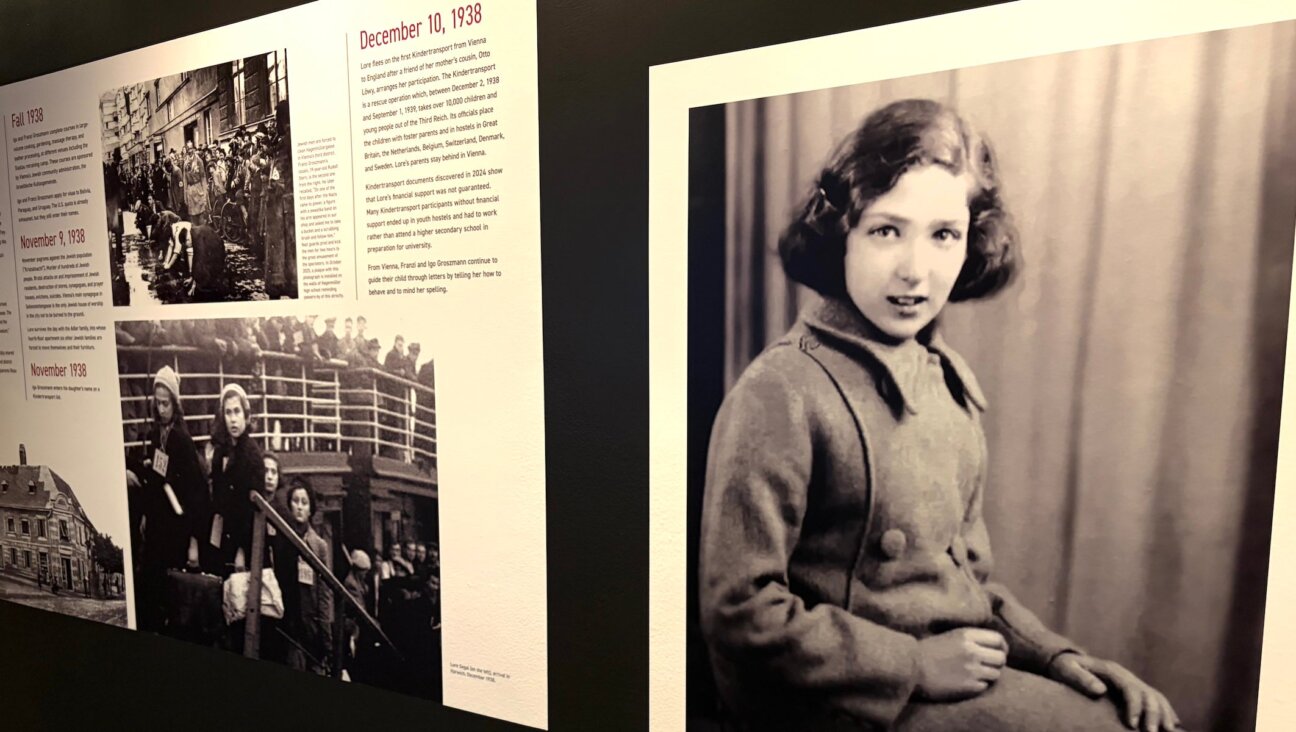Arms Smugglers Into Gaza Face a New Foe: Egypt

Graphic by Angelie Zaslavsky
As a consequence of the military action in Gaza and to please a new administration in Washington, Egypt has recently stepped up efforts to crack down on smugglers who use a network of tunnels to transport weapons to Hamas.
This assessment comes from Israeli analysts and from informed sources who say that while Hamas is still receiving goods and arms via the tunnels, the flow has been seriously curtailed since Operation Cast Lead last winter.
During the three-week conflict that erupted on December 27, the Israel Defense Forces destroyed many of the tunnels used to smuggle arms to Gaza from Egypt, and the IDF continues to bomb the tunnels. At the same time, Egypt has stepped up its efforts by conducting raids and setting up roadblocks to stop weapons smugglers.
“In the eyes of the international community, including Egypt, fighting smuggling has become a priority,” said Yoram Meital, head of the Chaim Herzog Center for Middle East Studies and Diplomacy at Ben-Gurion University.
Some analysts, however, cautioned against reading too much into what they said could just be intermittent bouts of Egyptian activity to stem smuggling and not a policy shift.
There is no reliable information on the numbers of tunnels that existed before the conflict — some reports say as many as 1,000 — nor how many were destroyed. What is clear, however, is that the military action dealt a serious blow to the network, which is run by businessmen and used to transport everything from refrigerators to livestock to arms. This is evident from reports in the Arab media about discontent that Hamas faces from some 4,000 residents who — they claim with Hamas’s encouragement — invested $500 million in the tunnels and lost it all in Operation Cast Lead.
In recent months, the IDF has targeted one or more of the tunnels about once a fortnight. Yet when the arms are going to Gazan soil from Egyptian soil, Israel is limited in what it can do on its own.
One of Israel’s major concerns before the war was that Egypt was lethargic in its efforts to confront the smuggling. And while arms are still getting through, and while Hamas certainly has more rockets and shells than the 20 a month it is firing into Israel, Egypt has been taking action.
On October 16, Egypt detained five smugglers and shut down a tunnel. A week earlier, it closed three other tunnels. Egypt is also making efforts to halt smuggling before it reaches the tunnels, by using intermittent roadblocks on routes used by the smugglers and by carrying out raids. On October 11, Egypt seized 1,100 tons of TNT in a raid in the northern Sinai Peninsula, and another 550 pounds of TNT along with automatic weapons in another raid nearby.
The Israeli Foreign Ministry “is feeling that there is a positive attitude,” spokesman Andy David told the Forward. He said that Israel is also happy to see “some international involvement.”
While David declined to elaborate, sources familiar with the situation said that American and British intelligence services — and French services, according to some sources — are providing information that is helping Egypt halt the smuggling. Much of this intelligence is thought to concern arms shipments before they reach Egypt, from the Red Sea and the Mediterranean.
The international involvement does not come as a surprise. Shortly after Israel declared a unilateral cease-fire with Hamas in January, six European leaders gathered in Jerusalem and spoke of their commitment to stop the arms smuggling into Gaza.
Less expected is Egypt’s flurry of activity. In the past, Egypt has been nervous about being seen as a collaborator with Israel and keen not to anger the Sinai Bedouins, who profit from smuggling.
Yagil Henkin, a military analyst at the Shalem Center in Jerusalem who advised the IDF during the war, told the Forward that many Cairo officials remain reluctant to undermine the tunnel network. They see the tunnels, which are used for goods as well as for weapons, as a “safety valve” to ensure that civilian supplies are making their way into Gaza and as a way to reduce the chance of a breach of the border — as happened in January 2008, to Egypt’s dismay.
When questioned about Egypt’s action, Israeli officials point to the fact that the country has a long-standing desire to limit Hamas’s power because Egypt is worried about having a strong Islamist presence on its border. “We believe that Egypt understands that Hamas is not only a threat to Israeli citizens, but also to Egypt,” David said.
But some analysts think that Operation Cast Lead constituted a more radical turning point for Egypt for two reasons.
The first is that the war brought Egypt’s conduct under scrutiny in the Arab world. With Gaza under blockade from Israel, Egypt came under intense criticism for keeping the Egypt-Gaza Rafah border crossing closed.
According to Yoram Meital, the Ben-Gurion University academic who is a leading Israeli analyst on Egyptian affairs, a renewed conflict would bring Egypt’s perceived collaboration with Israel back into focus, and therefore, “one of the results of Operation Cast Lead is that Egypt does not want to see a second round in Gaza.” Cairo considers a Hamas with weakened ability to fire rockets into Israel to be one of the best ways of preventing a renewed conflict, Meital said.
The second key impetus for Egyptian action, according to Meital, came with the inauguration of America’s president, Barack Obama. Observers believe that it was not a coincidence that Obama chose to make his historic June address to the Muslim world from Cairo, after five frosty years of Washington-Cairo relations under his predecessor, George W. Bush.
Egypt’s newfound willingness to confront smuggling was hardly mentioned in the world’s media when Obama was awarded the Nobel Peace Prize. But Meital contends that it is the most tangible result of Obama’s efforts to thaw relations with the Muslim world, which are what won him the prize. It is a “reflection of rapprochement,” he said. Meital elaborated that Egyptian President Hosni Mubarak “is keen to have the support of Obama. If that means intensifying efforts against Hamas, then this is a price he is prepared to pay.”
But not everybody is convinced that Egypt is up to the challenge. “I have serious doubts about Egypt’s willingness and ability to operate against Hamas for domestic reasons,” said Stuart Cohen, senior research associate at the Begin-Sadat Center for Strategic Studies at Bar-Ilan University. He said he questioned whether Egypt had the resources and the manpower to mount an effective, long-term crackdown against the smuggling.
Contact Nathan Jeffay at [email protected]













